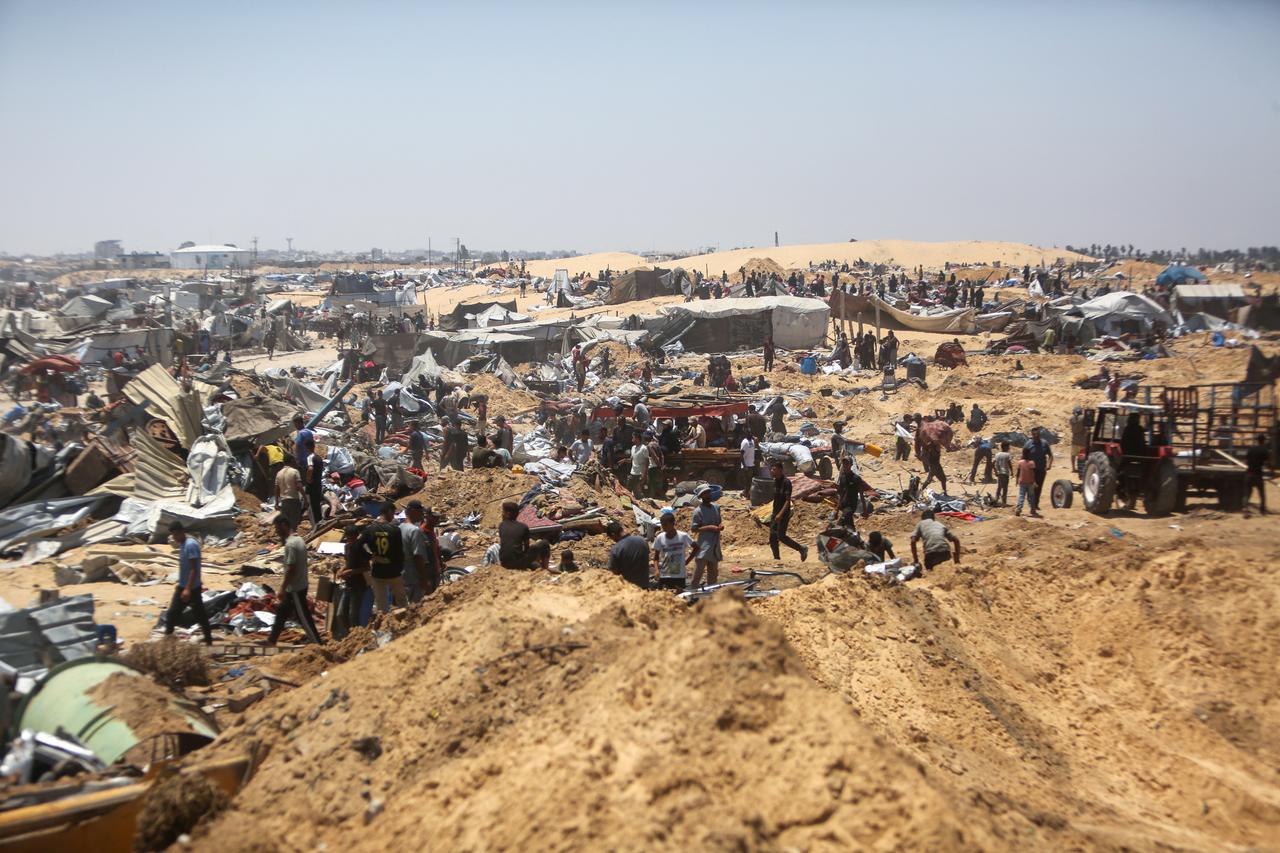
Former Israeli Prime Minister Ehud Olmert has condemned Israel's proposed "humanitarian city" for Palestinians in Gaza as a concentration camp, warning that forcing Palestinians inside would constitute ethnic cleansing.
"It is a concentration camp. I am sorry," Olmert told The Guardian when asked about plans outlined by Defense Minister Israel Katz last week to build the facility on the ruins of Rafah.
Olmert, who served as Israel's prime minister from 2006 to 2009, said the proposed facility would mark an escalation from Israel's current actions, which he already considers war crimes.
"When they build a camp where they plan to 'clean' more than half of Gaza, then the inevitable understanding of the strategy is not to save (Palestinians)," Olmert said, adding, "If they (Palestinians) will be deported into the new 'humanitarian city,' then you can say that this is part of an ethnic cleansing. It hasn’t yet happened. That would be the inevitable interpretation."
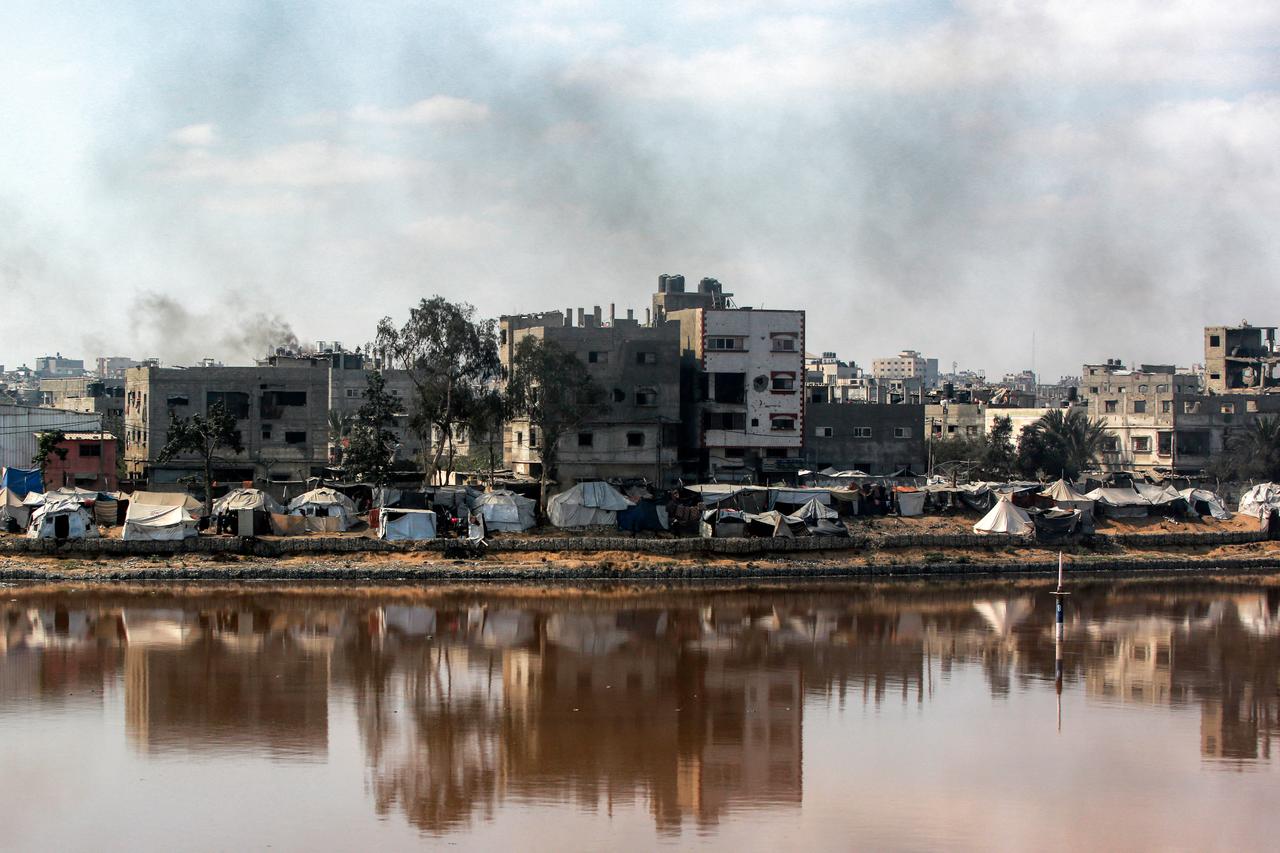
Israeli Defense Minister Israel Katz's proposal suggests the 'facility' would initially house around 600,000 displaced people from southern Gaza and include four aid distribution sites managed by international organizations.
The entire civilian population of Gaza—more than 2 million people—would eventually be relocated there.
New arrivals would undergo security screening to ensure they are not affiliated with Hamas, and once admitted, they would not be permitted to leave except to emigrate to other countries. The Israeli military would provide security "from a distance," Katz said.
The projected expense has been estimated between $3 and $6 billion, further fueling domestic outrage as the cost of nearly two years of war mounts.
Olmert said the idea that the "humanitarian city" aims to protect civilians lacks credibility, especially given months of violent rhetoric from government ministers.
"When they build a camp where they plan to 'clean' more than half of Gaza, then the inevitable understanding of the strategy is not to save (Palestinians)," Olmert said, adding, "It is to deport them, to push them and to throw them away. There is no other understanding that I have, at least."
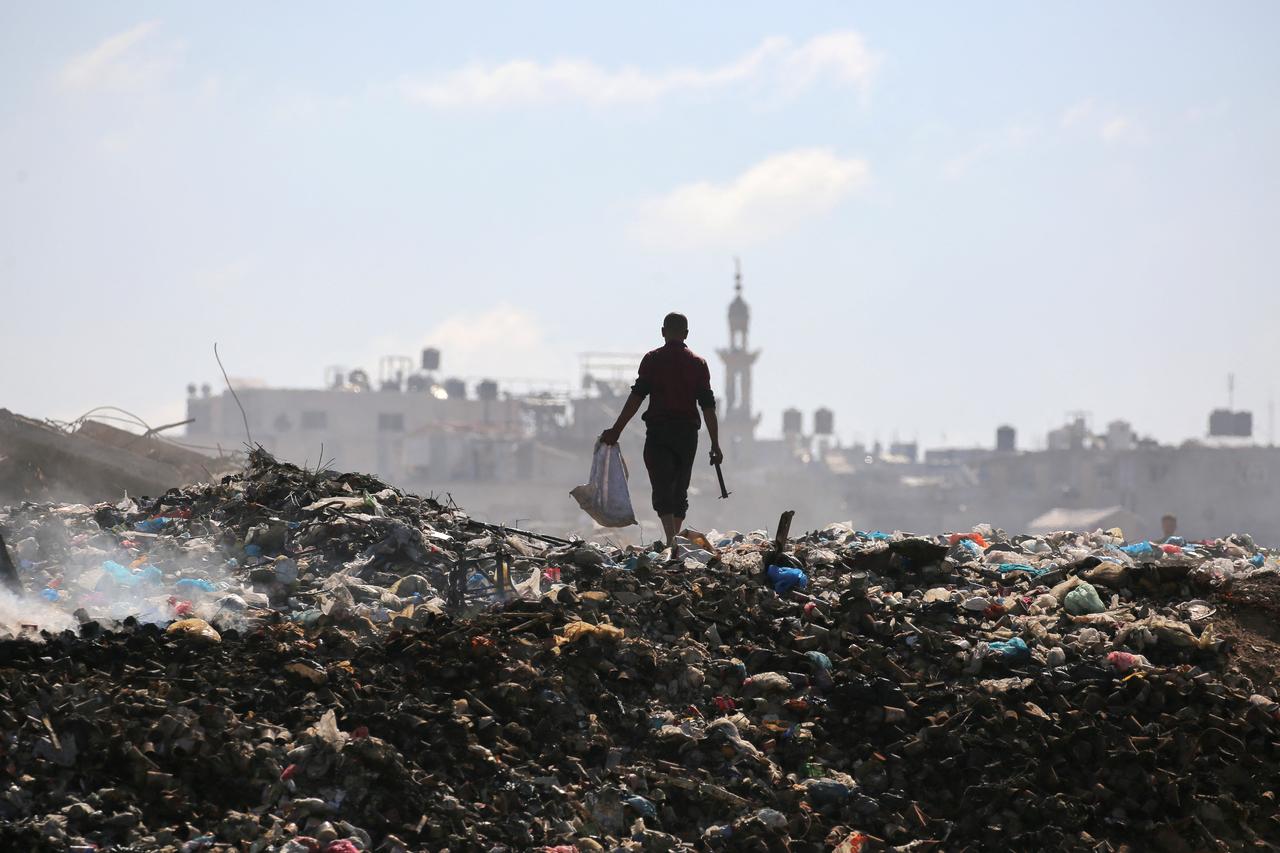
The Israeli military voiced strong opposition, warning the plan could derail ongoing ceasefire and hostage negotiations with Hamas.
At a cabinet meeting, Chief of Staff Eyal Zamir clashed with Prime Minister Benjamin Netanyahu and Finance Minister Bezalel Smotrich, cautioning that the project could undermine core military objectives.
Netanyahu reportedly rejected the plan during the meeting, saying, "I asked for a realistic plan," according to Israeli Channel 12.
Opposition leader Yair Lapid also condemned the proposal on X, stating, "Netanyahu is letting Smotrich and Ben Gvir run wild with extremist delusions just to preserve his coalition. Instead of plundering the middle class’s money, end the war and bring back the hostages."
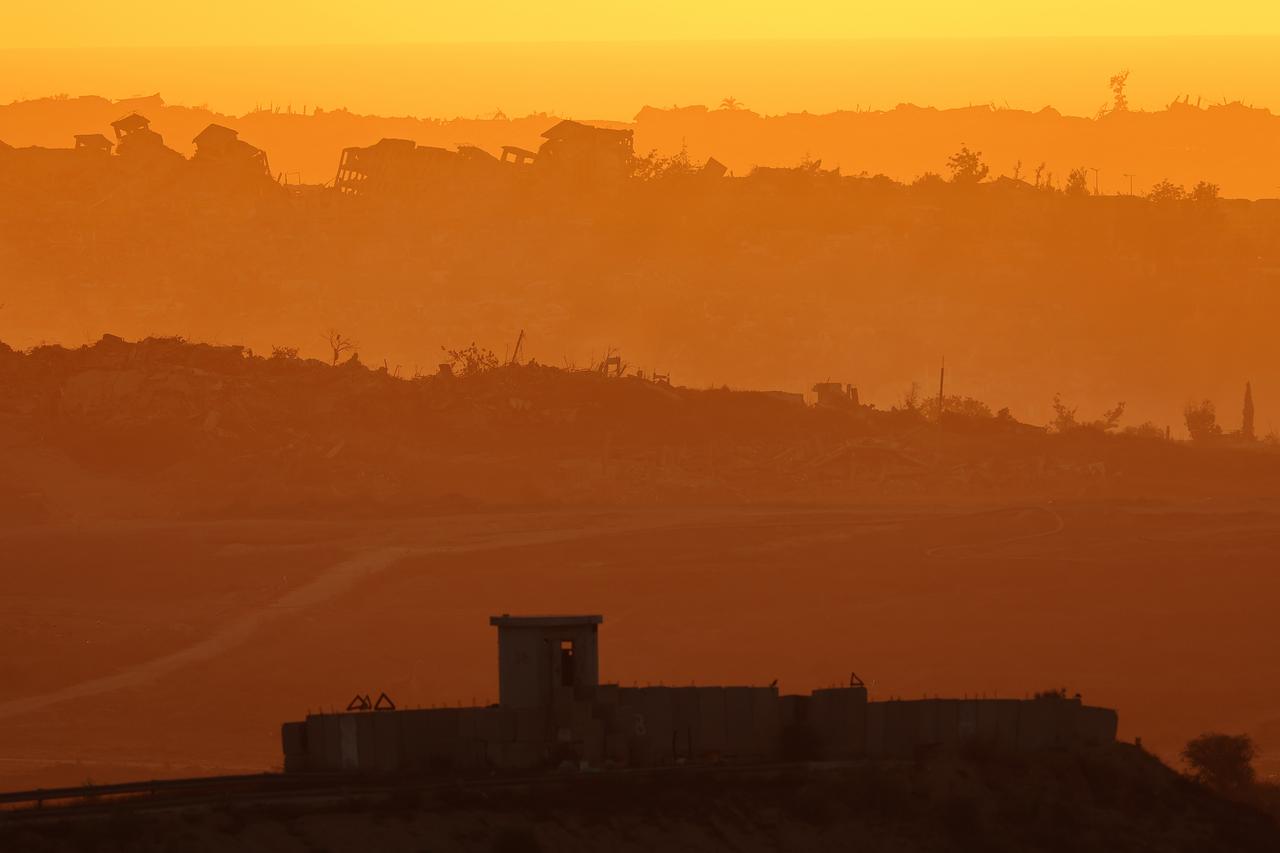
UNRWA described the planned facility as a "concentration camp," while Amnesty International stated that relocation or forced deportation of Palestinians "would amount to the war crime of unlawful transfer."
On Friday, sixteen Israeli legal scholars warned the government that the plan “could amount to a war crime,” and Michael Milshtein, a former Israeli intelligence officer who heads the Palestinian studies program at Tel Aviv University, who spoke to AFP on Sunday, called it one of several “fantasies” floated by leadership amid frustration over the war’s lack of resolution.
"There is only sand and fields, nothing," Milshtein said of the proposed site. "Nobody tells the Israeli public what the price is and what the consequences are of reoccupying Gaza, from the economic, political and security points of view."
"I really think that if people understand that the purpose of the war is the reoccupation of Gaza, there is going to be a lot of social unrest in Israel," he added.
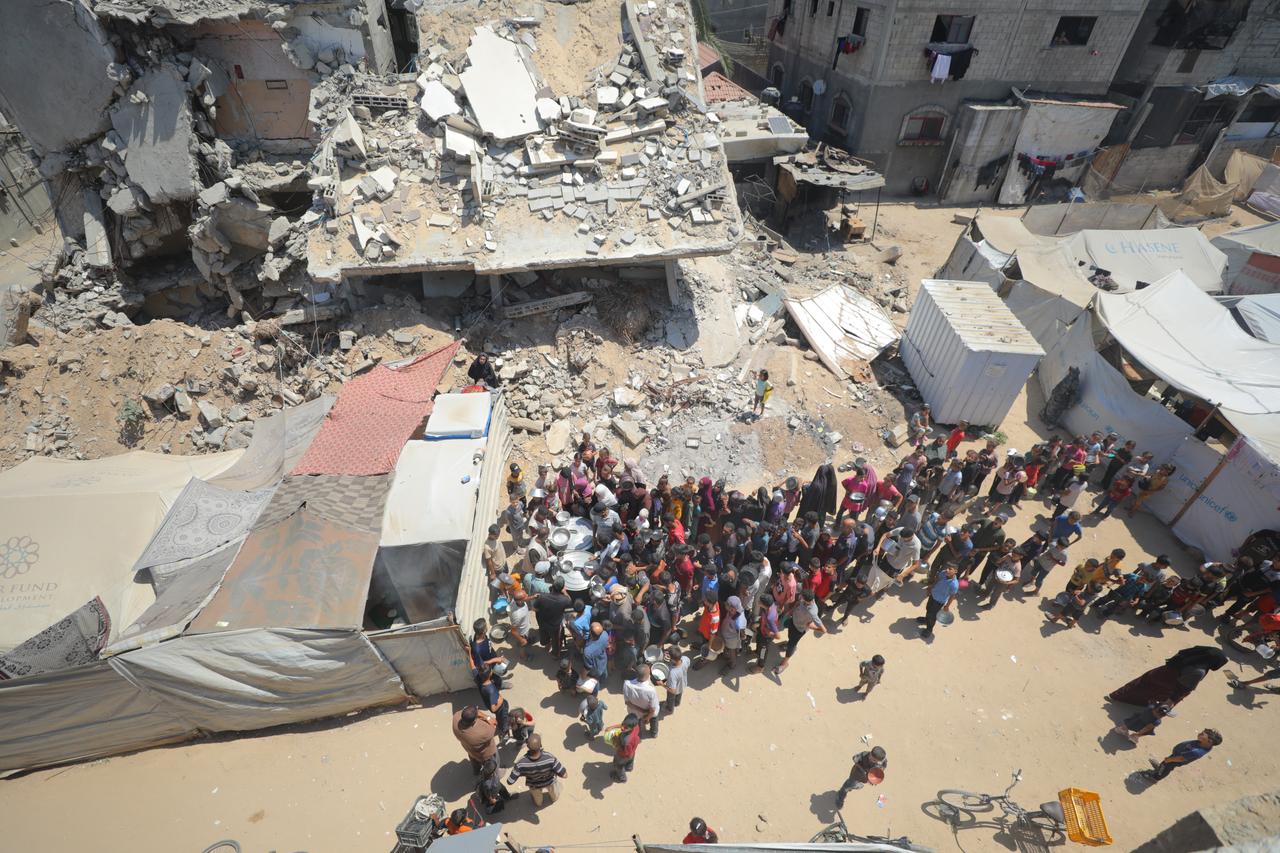
The former prime minister accused Israeli authorities of providing support and protection for what he called "hilltop atrocities"—violent "campaigns by young settlers that have forced residents of several villages to flee their homes over the past two years.
"There is no way that they can operate in such a consistent, massive and widespread manner without a framework of support and protection, which is provided by the [Israeli] authorities in the [occupied Palestinian] territories," he said.
Olmert described extremist cabinet ministers who backed violence in Gaza and the West Bank as a greater threat to Israel's long-term security than any external foe. "These guys are the enemy from within," he said.
Olmert also said Israel was already committing war crimes in Gaza and the occupied West Bank, describing the proposed camp as a further escalation.
"It is unforgivable. Unacceptable. There are continuous operations organized and orchestrated in the most brutal, criminal manner by a large group," Olmert said of settler attacks. Olmert acknowledged that extreme suffering in Gaza and settler violence in the West Bank were fueling growing international anger against Israel that cannot be dismissed as antisemitism.
"In the United States, there are more and more and more expanding expressions of hatred toward Israel," he said.
"We make a discount to ourselves, saying, 'They are antisemites.' I don't think that they are only antisemites; I think many of them are anti-Israel because of what they watch on television and what they watch on social networks," he added.
"This is a painful but normal reaction of people who say: 'Hey, you guys have crossed every possible line.'"
Nearly 21 months of war have devastated Gaza, displacing most of its population and killing over 58,000 Palestinians, most of them women and children, according to the Gaza Health Ministry.